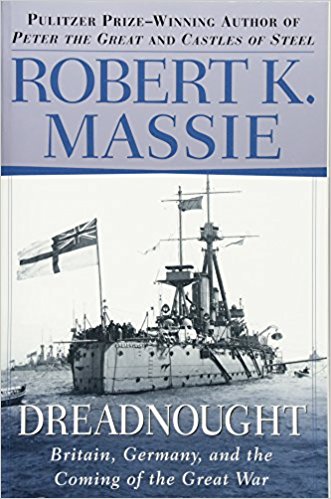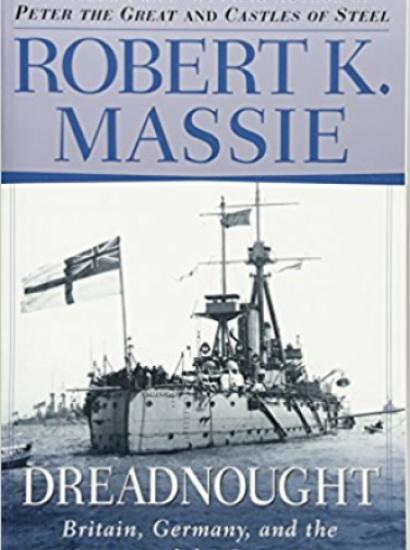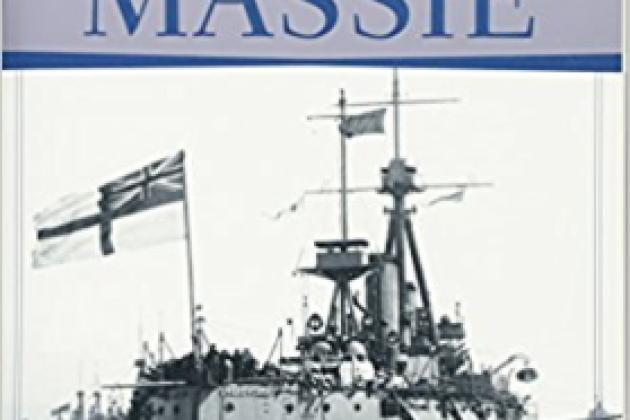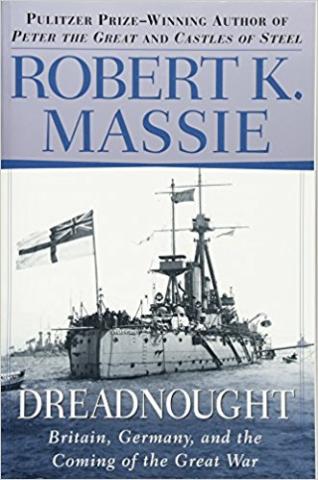- History
Pulitzer Prize-winning author Robert Massie gives us much more than a recounting of the naval race that fatally estranged Britain and Germany starting in 1900. Massie is a biographer and the great strength of his massive work is the biographies he provides of key players on both sides. Weaving pithy biographic sketches into the pre-war narrative adds substantially to a deeper understanding of why so many of the critical events of the era unfolded the way they did. The book is a veritable who’s who of Europe at the turn of the 20th century.
Massie describes at the right level of detail the significant events and oft-flawed decisions. From the Boer War in Southern Africa to the “Panther’s leap” in Agadir to the archduke’s assassination in Sarajevo; from Britain eschewing “splendid isolation” to Germany’s desire for a place in the sun and Weltmacht, the reader witnesses a coalescence of strange bedfellows, informal military discussions, informal then formal alliances and, ultimately, war.
Wilhelm II does not come across well. In 1904 he would reminisce that he wanted “ships of his own” like the ones he saw as a boy visiting Portsmouth, failing to consider that by challenging British naval supremacy he was stumbling toward a third rail along with his cousins across the North Sea. There is at least some parallel to today’s military and political events.
Readers lured to the book by its title and an interest in pre-war naval development will not be disappointed. There is even an appendix that lists all the capital ships built from 1905-1914 by country and class. They will also, however, accrue the added benefit of developing an appreciation for the men whose vision and drive led to development of the great ships that were at once a source of national pride, extraordinary capital expenditure, and strategic misunderstanding. Characters like “Jacky” Fisher, the young Winston Churchill, and Alfred von Tirpitz could be called many things, but hardly wall flowers. Massie does them justice.
While Dreadnought weighs in at over 900 pages of text, it is an easy and enjoyable read that provides one-stop shopping for an understanding of the events leading up to the Great War and the cast of characters who played pivotal roles in them. Woven throughout is a naval theme and poignant account of the 20th century’s first arms race. Others would follow, but none with more tragic, perhaps even avoidable, results.
















